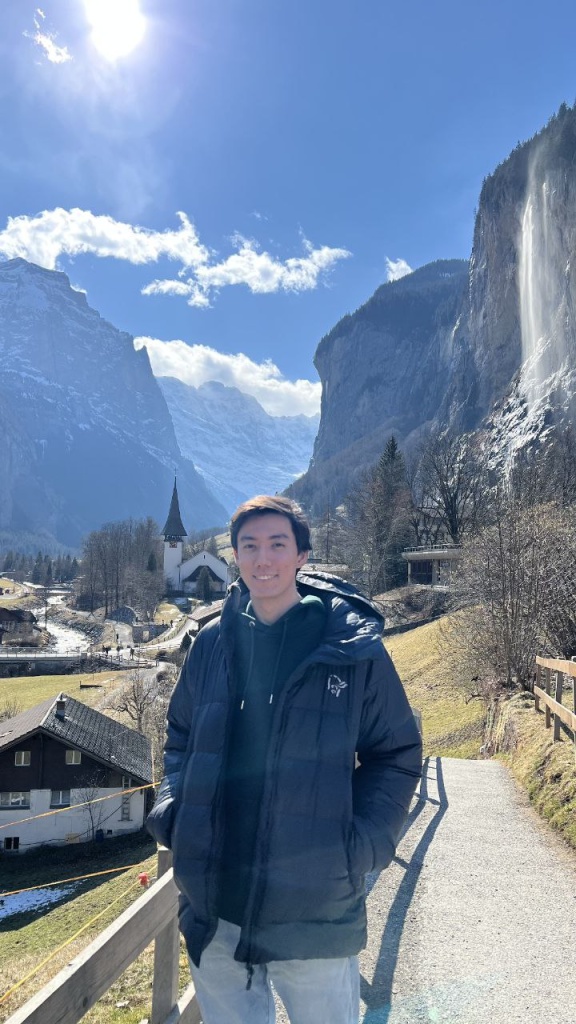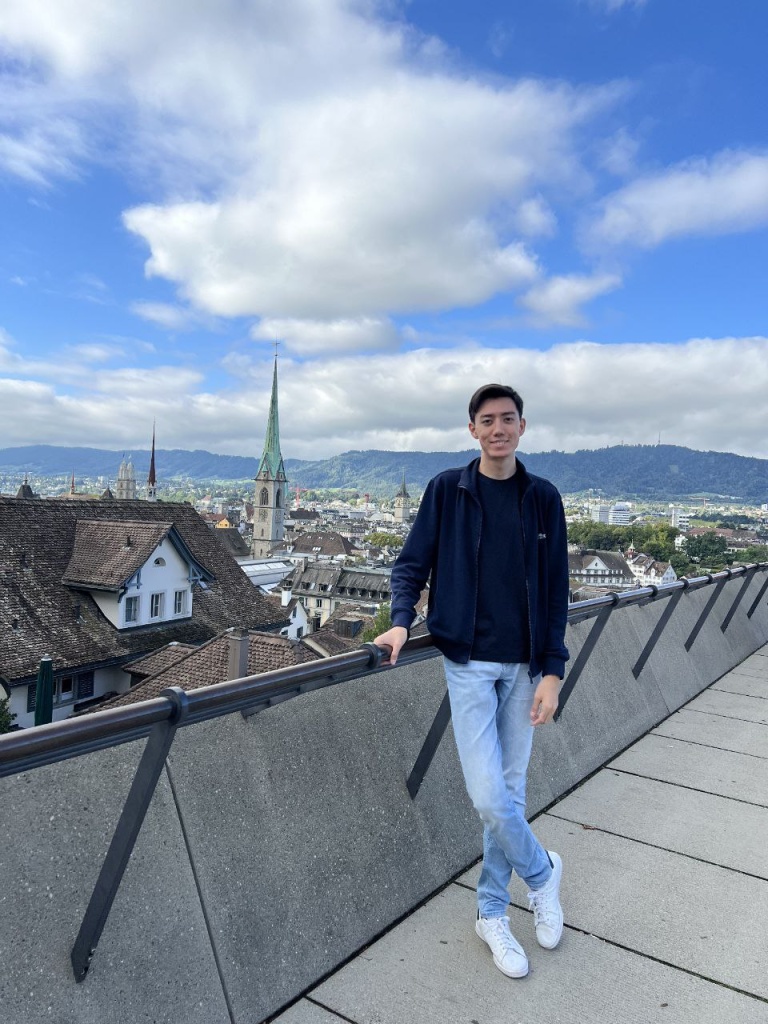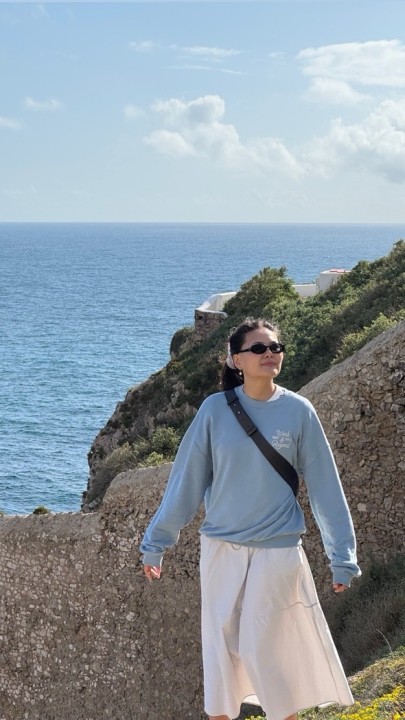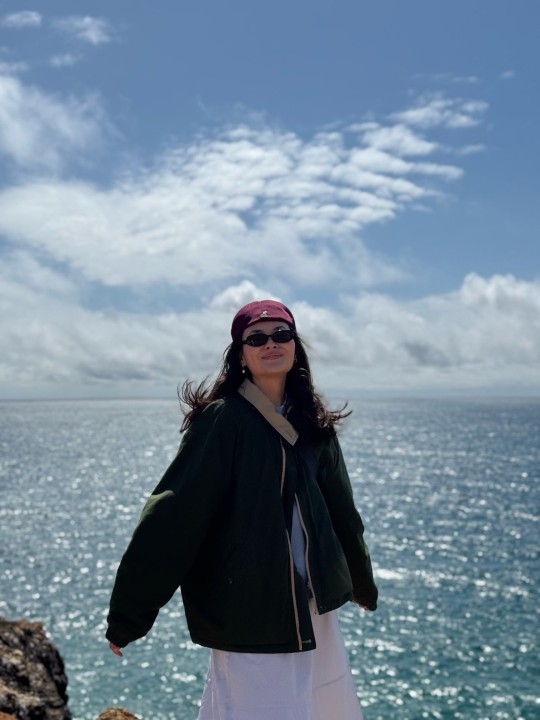ETH Zurich is one of the world’s top technical universities, offering outstanding opportunities for academic research and career growth. In this interview, students share their personal experiences of applying, studying, and adapting to life at ETH, along with valuable advice for future applicants.
Amir Zholdasbekov, 22, city — Zurich, student, research assistant at ETH Zurich, linkedin

Choosing the university
ETH Zurich perfectly matched all my criteria. The university is known for its exceptional contributions to science, especially in chemistry. 22 Nobel Prize winners have studied or worked here, including Albert Einstein. ETH offers a high-quality education, extensive research opportunities, and industry collaborations, making it a top institution in European rankings.
The university’s location also played a big role in my decision — Zurich attracted me with its safety, beautiful nature, calm pace of life, and high living standards.
Application process
The process of applying to a master’s program is standard and similar to many others. The hardest part for me was the motivation letter — it’s where you need to show your personality, not just list your achievements.
ETH places strong emphasis on academic excellence, so your grades and research potential are key. Letters of recommendation also matter a lot. It’s crucial to request them from people who genuinely know you and can objectively assess your academic and professional abilities. I got one letter from Professor Timur Atabaev at Nazarbayev University, with whom I worked for two years, and another from Professor Patrick Schmuki, an ETH alumnus with whom I did a summer internship after my third year, funded by the Sh. Yessenov Foundation. To my knowledge, non-academic achievements aren’t particularly valued in ETH’s selection process.
I submitted a motivation letter, a C1-level English certificate, two recommendation letters, my bachelor’s transcript with course descriptions, and my high school diploma with grades. Engineering programs often require the GRE, but I wasn’t asked to submit one. I took the IELTS back in high school, so I didn’t need to prepare again.
My main source of information was the university website, where everything is clearly explained, including program requirements, course content, and research opportunities. I also benefited from talking to professors about their career paths.
Studying at ETH
ETH emphasizes practical application of knowledge. Out of 90 credits in my master’s program, only 39 are for lectures — the rest are for mandatory research projects, internships, and the thesis. The university is well-equipped and gives students the freedom to implement their ideas and gain hands-on experience. The flexible curriculum allows students to adjust their workload, which overall isn’t that different from what I experienced at Nazarbayev University.

In the master’s program, most subjects are assessed through final exams, often oral — something I wasn’t used to. For written exams, there are usually dedicated Q&A sessions. Professors are approachable and always ready to help.
Every year, ETH hosts a major career fair called Polymesse with more than 100 companies. Student clubs also organize career-related events in their fields. Internships are built into the program, helping students grow professionally. ETH actively supports startups and entrepreneurial initiatives.
Recommendations
ETH graduates are highly valued in both academia and industry. But the most important thing is not just having the diploma — it’s how you use the university’s opportunities to develop your skills and competencies.
Start preparing at least a year before the application deadline. Know clearly why you want to study at a top university and what goals you are pursuing. Then make a plan: choose universities, arrange recommendation letters, plan test dates, compile the list of required documents, and check deadlines for programs and scholarships. Even with a strong resume, admission to a top university isn’t guaranteed, so have backup options. Mine were Erasmus and DAAD programs.
A major mistake is starting too late. Many people underestimate how much time essays and tests take. Recommendation letters should also be requested early, as professors may not have time to write a quality letter.
Yerkezhan Amerzhanova, 29, city — Zurich, PhD Candidate, linkedin

Choosing the university
I had heard of ETH Zurich long ago — it always appears in top university rankings. I considered applying for a master’s or PhD even during my bachelor’s, but I knew the process was challenging and highly competitive.
After completing my master’s, during an internship at EMBL in Germany, I had the opportunity to attend a conference in Switzerland organized by an ETH Zurich research group. There, I learned more about research in RNA Biology, which was my area of interest. That’s when I seriously considered applying for a PhD at the Institute of Molecular Biology.
Application process
There are two ways to apply for a PhD at ETH Zurich: through the official program or directly to a professor. I chose the second option because I already knew what I wanted to study. I researched research groups, wrote to a professor, and attached my CV, motivation letter, and recommendations.
He replied some time later and offered an online interview. I talked about myself and my interests, and he explained the group’s work. Then I was invited to the lab to present my research and meet the group and see the facilities. The professor covered all the travel expenses. I spent a day in the lab, met everyone, discussed projects and the work atmosphere. This helped both sides understand if we were a good match.
Later I received an offer. At ETH, this means automatic enrollment. A PhD is considered a job, and the salary comes from the professor’s grant, so their financial support is essential. You can apply for external funding, but it takes longer.
Now, about the official route. It’s a longer process with strict deadlines. You apply through the portal and go through a first-stage screening based on your grades, motivation, and recommendations. In the application, you list several research groups. If you pass, your application is forwarded to professors who decide whether to invite you for an interview. The rest of the process is similar. The downside is the high competition in the first stage, so even strong candidates can be rejected. But it’s a good option for those who are still exploring their research interests.
Studying at ETH
In Switzerland, the workload is higher, but the focus is on quality, not quantity. Students have more freedom: they study materials independently, prepare for exams, and complete projects. This fosters independence, planning, and responsibility. In Kazakhstan, especially during undergraduate studies, there is more supervision — attendance and performance are closely monitored.
Master’s and PhD programs in Switzerland focus on research from early on. Students engage in projects and publications starting in late bachelor’s years. During master’s, they rotate through different labs, helping them find the right research direction. In Kazakhstan, research often starts later. However, the system is changing — for example, Nazarbayev University follows the Western model with more freedom, flexibility, and research opportunities.

Grades in Switzerland often depend on one or two major exams or assignments. Final exams can count for up to 100% of the grade. Courses are graded on a six-point scale, where four is the passing mark. Some are pass/fail. Attendance and progress are the student’s responsibility. Professors provide feedback upon request and are generally supportive. Building a connection with professors can be helpful in the long run.
There are no grades in a PhD, but there are regular meetings with a committee — your supervisor and other professors, where you present your progress and receive feedback. The main focus is research. Courses are limited and closely tied to your research area.
ETH Zurich provides strong support to students. It offers access to one of Europe’s largest libraries, free or discounted language courses, consulting on course selection, exam prep, motivation letters, and more. ETH promotes student research, internships, and summer schools.
The university’s career center helps with resumes, internships, job searches, and interview and soft skills training. Career fairs like Polymesse are organized with companies like Google, Roche, and Siemens. ETH is well connected to industry: many professors collaborate with companies, and students participate in joint projects. The startup scene at ETH and in Switzerland is also very active — the university supports startups through funding and industry connections.
Recommendations
First, an ETH Zurich degree is a solid credential, as the university consistently ranks in the global top 10 for technical education. It maintains its reputation through successful alumni around the world. ETH offers a powerful platform for personal growth, collaboration, and networking. Its partnerships with global companies open up many career paths for graduates.
A PhD is a major step for an academic career, but it also teaches valuable skills and life lessons that apply across fields. That’s why the degree is respected beyond academia.
I recommend starting preparations early and devoting enough time to the process. From the beginning, try to gain practical experience through internships and volunteering. Research your field in-depth — find out which skills are in demand and what you need to develop. Conferences and seminars are great for meeting people and learning from their experiences. Strong writing and communication skills are essential for applications and interviews. Most importantly, stay motivated and be ready to learn new things from scratch.
One common mistake is not allocating enough time for document preparation. Universities assess your attention to detail based on how accurately everything is submitted.
Another mistake is using a generic motivation letter. It’s easy to spot and shows a lack of effort. You need to clearly connect your background to the specific program.
One more mistake is choosing the wrong recommender. Choose someone who truly knows your work and can give specific examples. Vague, generic recommendation letters only weaken your application.